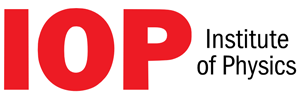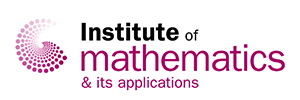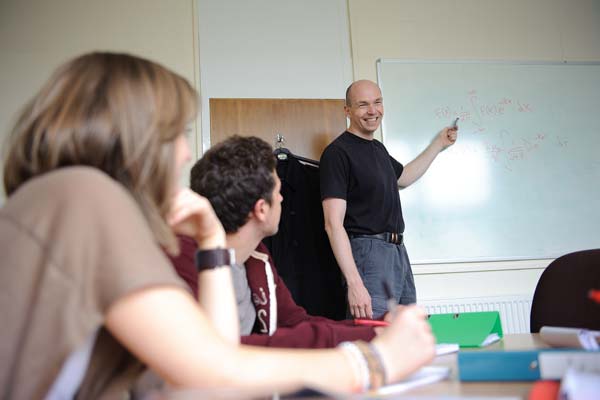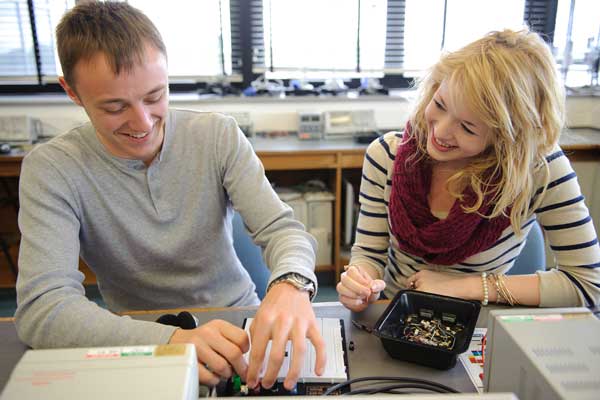View semester dates

MMath/MPhys (Hons) Mathematics and Physics
The book of nature is written in the language of mathematics - Galileo Galilei
Year of entry: 2026/27
View semester dates
Mathematics and physics are natural subjects to combine at university. Comprehending high-level physics requires a strong mathematical foundation. Mathematical models are developed to explain our observations of the physical world.
Our integrated programme gives you access to the combined expertise of staff working in both physics and mathematics. Our specialist teaching emphasises the mathematical structure of physical theory, providing a strong basis on which to build a comprehensive understanding of modern physics.
You'll work with dedicated staff, all of whom are engaged in current research and many are world leaders in their field. You will benefit from training in cutting-edge mathematical and theoretical physics techniques, and use these to probe the nature of physical reality and push the boundaries of research.
Accreditation
The MPhys degree is accredited by the Institute of Physics (iop.org) and the MMath by the Institute of Mathematics and its Applications (ima.org.uk), guaranteeing the standard of our teaching and learning. Completing this degree will put you on track to becoming a Chartered Physicist or Chartered Mathematician.



Something I have utilised a lot since coming to York is the resources the University has for students. The library has a collection of resources for our number crunching brains, along with a Maths Study Skills Centre which offers advice and guidance on maths topics. University allows you to learn to be independent without ever having to go through difficult things on your own.
Course content
Your studies will be split fairly evenly between physics and mathematics.
In mathematics you'll explore areas such as dynamical systems, nonlinear dynamics and fluid mechanics. These modules, taught by mathematical physicists will provide you with rigorous training in underlying theory, allowing for greater concentration on your fundamental mathematics.
As your studies progress, you will complete a thorough grounding in physical knowledge, scientific principles and methods. Core modules will give you a comprehensive understanding of fundamental physics, while optional modules in your third and fourth year allow you to investigate favourite topics in further depth.
Year 1
In your first year, you will study core modules which emphasise key material to consolidate your existing knowledge and prepare you for more advanced study.
Core modules
- Relativity
- Classical Mechanics and Laboratories
- Classical and Quantum Waves
- Foundations and Calculus
- Mathematical Programming and Skills
- Multivariable Calculus and Matrices
Academic integrity module
In addition to the above you will also need to complete our online Academic Integrity module.
Year 2
In Year 2 you'll deepen your understanding of fundamental laws, processes and techniques.
Core modules
Year 3
Year 3 introduces some advanced concepts, building on the expertise you've developed. Option modules give you the chance to delve deeper into your favourite topic, or discover a new area of advanced physics or mathematics.
Option modules
You will study six option modules. Examples can be found below. Some option module combinations may not be possible. The options available to you will be confirmed after you begin your course.
- Plasma Physics and Fusion
- Quantum Mechanics
- Advanced Theoretical Techniques and Modelling Matter
- Relativity and Cosmology
- Medical Physics
- Nuclear and Particle
- Quantum Science and Technologies
- Mathematical Modelling: Nonlinearity, Uncertainty, and Computational Methods
- Partial Differential Equations
- Quantum Theory and Quantum Information
- Cryptography
- Numerical Analysis
- Fluids
- Mathematical Ecology, Epidemiology and Evolution
- Condensed Matter Physics: Electrons in Solids
- Astrobiology
- Advanced Sensors and Instrumentation
- Mobile Communications and Internet Protocols
Elective modules
You may be able to replace one option module with an elective module, studying a complementary subject, a language or an interdisciplinary topic.
Year 4
The fourth year consists of a number of advanced option modules, providing you with the opportunity to specialise further. You'll apply the core knowledge you've developed over the previous years to topics aligned with our internationally-recognised research groups.
You'll undertake a major research project under the supervision of an academic member of staff with expertise in the area you choose to focus on. You'll conduct original research to reach new conclusions and, at the highest levels, contribute to our understanding of physics.
Core modules
You'll choose a project focusing either on maths or physics. Our students widely acknowledge the final project as one of the most satisfying and rewarding parts of the course. You'll undertake independent research to investigate a current problem in the field, or bring new perspectives to a familiar topic. You may need to design, build and evaluate equipment for a specific experimental purpose.
Recent projects have included:
- Shape coexistence in thallium and bismuth isotopes studied by laser spectroscopy
- Exploring Exotic Nuclear Shapes and Structures
- Nuclear Instrumentation Solutions for Industry
- Construction of a polarised TIRF microscope to probe membrane diffusion
- Exotic nuclei studied with knockout and fragmentation reactions
- Strain control of a magnonic crystal
You'll be supported by a professional skills module to hone your research techniques. You'll undertake a literature survey, write a review essay, develop a project plan and give oral and poster presentations in an end-of-year conference.
Option modules
You will study four option modules. Examples can be found below. Some option module combinations may not be possible. The options available to you will be confirmed after you begin your course.
- General Relativity
- Scientific Supercomputing
- Biophysics
- Advanced Condensed Matter Physics
- From Subatomic to Nuclear Astrophysics
- Advanced Quantum Mechanics
- Advanced Plasma Physics for Fusion and Applications
- Cosmic Horizons
- Mathematical Modelling: Nonlinearity, Uncertainty, and Computational Methods
- Partial Differential Equations
- Quantum Theory and Quantum Information
- Quantum Field Theory
- Directed Learning in Mathematics
- Fluids
- Mathematical Ecology, Epidemiology and Evolution
- Riemann Surfaces and Algebraic Curves
You can choose to take Frontiers in Mathematics in the second semester. This is a modern interdisciplinary module, where you will have a chance to study 3 topics selected by popular demand from the list that could include for example:
- Laplace Integrals and differential equations
- Multi-valued functions and asymptotic analysis
- Topics in Semigroup Theory
- Topics in Functional Analysis
- Introduction to conformal field theory
- Mathematical methods of biomechanics
- Statistical mechanics and biological matter
- Applications of tiling and group theory in virology
- Interacting QFT with path integrals
- QFT on curved spacetimes
Elective modules
You may be able to replace one option module with an elective module, studying a complementary subject, a language or an interdisciplinary topic.
Our modules may change to reflect the latest academic thinking and expertise of our staff, and in line with Department/School academic planning.
Learning outcomes
Every course at York has been designed to provide clear and ambitious learning outcomes. These learning outcomes give you an understanding of what you will be able to do at the end of the course. We develop each course by designing modules that grow your abilities towards the learning outcomes and help you to explain what you can offer to employers. Find out more about our approach to teaching and learning.
Learning outcomes for this course
- Identify typical problems posed by the description of nature in mathematical terms and approach them in a systematic manner, using exact methods or approximations in a controlled manner, applying a wider range of theories and mathematically more sophisticated methods.
- Investigate unseen problems by adapting and generalizing known strategies and techniques taking into account specific, defining circumstances and the empirical character of physical theories, leading to predictions within well-defined limitations.
- Extract relevant information from the research literature and use it effectively to developing lines of reasoning, assess the pros and cons of a technique or hypothesis, or prove mathematical statements.
- Engage convincingly in inductive and deductive mathematical reasoning while creatively balancing the rigour of mathematical argument with the more intuitive approach needed for its application in physics.
- Work independently with confidence to further the understanding of current physical theories and/or mathematical research by undertaking complex tasks and raising relevant issues for discussion with peers.
- Communicate the content of modern physical theories both in writing and orally, emphasising the interplay between mathematical formalism and natural phenomena organising and surveying known research in an original way.

The Department of Mathematics is always making us aware of the different careers opportunities that are available to us so that we can further improve our employability. Our careers officer sends weekly emails with current internships, volunteering and summer schools that are on offer.
Fees and funding
The fees and funding information here is for students starting in the 2026/27 academic year.
If you take a year abroad or year in industry you'll pay a reduced rate of fees for that year.
Annual tuition fees
| UK (home) | International and EU |
|---|---|
| £9,535 (TBC) | £32,350 |
The UK government has announced its intention to increase tuition fees from £9,535 to £9,790 for the 2026/27 academic year. We expect this to apply to new UK (home) undergraduate students starting their studies in September 2026.
UK (home) or international fees?
The level of fee that you will be asked to pay depends on whether you're classed as a UK (home) or international student. Check your fee status.
Fees for subsequent years
- UK (home) fees may increase within the government fee cap in subsequent academic years. We will notify you of any increase as soon as we can.
- International fees are subject to increase in subsequent years in line with the prevailing Consumer Price Index (CPI) inflation rate (up to a maximum of 10%).
More information
For more information about tuition fees, any reduced fees for study abroad and work placement years, scholarships, tuition fee loans, maintenance loans and living costs see undergraduate fees and funding.
Additional costs
You will need to cover transportation costs to/from any placement during a year in industry as well as living costs while on placement. You should be able to cover the majority of expenses with salary earned during the placement.
You will need to cover transportation costs to/from any placement during a year abroad. You may be eligible for extra loans and/or grants through your student loan provider dependent on your financial background.
Funding
We'll confirm more funding opportunities for students joining us in 2026/27 throughout the year.
- UK government loans
- UK scholarships and bursaries
- International scholarships
- Country-specific funding
- US loans
Masterclass Research Placements
Any student who enters stage 1 of any of our physics degrees having achieved an A* at A level (or equivalent) in Mathematics or Physics and achieves an overall Year Mark of 70 per cent or higher in stage 1 in their first attempt is guaranteed a Masterclass Research Placement.
In addition, a number of Masterclass places will be made available to students who did not qualify based on entry qualification, but who achieve an overall Year Mark of 70 per cent or higher in stage 1 in their first attempt and have demonstrated significant improvement in their abilities during their first year of study.
York, Oxford, Cambridge, Imperial
Just four UK universities are rated Gold for teaching and top ten for research* in the latest national assessment exercises.
* Awarded joint 10th in the Times Higher Education ranking of the Research Excellence Framework 2021.
Teaching and assessment
You’ll study and learn with academics who are active researchers, experts in their field and have a passion for their subjects. Our approach to teaching will provide you with the knowledge, opportunities, and support you need to grow and succeed in a global workplace. Find out more about our approach to teaching and learning.
Teaching format
Much of your teaching will be in the form of lectures based on our cutting-edge research. You will regularly join other students for small group discussions of course material with a tutor. Discussions often range beyond the immediate subject matter to wider implications and issues.
You'll have regular meetings with a personal academic supervisor, who will guide your studies and keep an eye on your academic progress and general welfare.
Timetabled activities
In your first year, you can expect:
| Lectures | 10-11 hours per week |
|---|---|
| Seminars | 4 hours per week |
| Practicals | 2-6 hours per week |
These figures are representative of a typical week. Your contact hours will vary throughout the year due to your module choices, non-compulsory classes, exam periods and changes to scheduled activities.
Outside your timetabled hours, you'll study independently. This may include preparation for classes, follow-up work, wider reading, practice completion of assessment tasks, or revision.
In the UK, full-time students are expected to spend 1,200 hours a year learning. That's about 40 hours of classes and independent study each week during semesters. Everyone learns at a different rate, so the number of hours you spend on independent study will be different to other students on your course.
Teaching location
You'll be based in the School of Physics, Engineering and Technology on Campus West. Most of your teaching will take place within the School, with some classes in the Department of Mathematics and elsewhere on Campus West.
About our campus
Our beautiful green campus offers a student-friendly setting in which to live and study, within easy reach of the action in the city centre. It's easy to get around - everything is within walking or pedalling distance, or you can use the fast and frequent bus service. Take a campus tour.
Assessment and feedback
Most of your assessment will be by formal examination. You'll also be marked on regular problem exercises and laboratory work, coursework and formal report writing.
Your MPhys or MMath project makes up a large proportion of mark for your final year. You'll be assessed on your lab work and dissertation, and face an oral examination: all great preparation for continuing your studies to PhD level.
We balance various types of assessment to develop and test your different strengths:
- Examinations
- Extended assignments
- Weekly practice questions
- Formal reports
- Presentations
You'll get prompt, regular feedback to help you develop your skills. Our open door policy means you can always approach your tutors if you want to discuss your work.

I chose to study Physics as it enables me to understand the world’s fundamental workings. I enjoy applying my knowledge to diverse physical situations. It’s a subject where there’s always something new to learn. It keeps you on your toes and offers a wealth of transferable skills that can be utilised in a future career!
Careers and skills
Our graduates are sought by employers in a huge range of disciplines. The skills you will learn - analysis, mathematics, problem-solving - are relevant in industries from finance to software development. This is supported by a central careers service, but also within the school through our contacts with industry. Alternatively, many of our graduates progress to postgraduate degrees at York and other leading universities.
We're committed to supporting our students' career development and employability - it's embedded in our core teaching. We organise activities from careers fairs to leadership building exercises to ensure you're prepared to enter the jobs market with a competitive edge.
Companies that York physics graduates have gone on to work for include: BAE Systems, E.ON, De Vere, The Home Office, Jaguar Land Rover, John Lewis, the Science and Technology Council, and Virgin Money.
Career opportunities
Our graduates are working as:
- accelerator physicist
- engineer
- scientist
- financial coordinator
- IT analyst and consultant
- teacher
- electrical engineer
- environmental modeller
- accountant
Transferable skills
- Self-management
- Communication skills
- Team working
- Problem solving
- Creativity and innovation
- IT literacy
- Mathematics
Entry requirements
| Qualification | Typical offer |
|---|---|
| A levels | AAA including Physics and Mathematics. |
| European Baccalaureate | 85% overall, with 85% in Physics and Mathematics |
| International Baccalaureate | 36 points overall, including 6 in Higher Level Mathematics (either Analysis and Approaches or Applications and Interpretations) and 5 in Higher Level Physics |
| T levels | We are currently not accepting T Levels for this course unless additional A Level (or equivalent qualifications) in Mathematics and Physics have been taken. |
| Scottish Highers / Advanced Highers | Advanced Highers - AB in Physics and Mathematics plus Scottish Highers - AB We may also be able to consider three Advanced Highers or a combination of Highers and Advanced Highers, where an applicant does not meet the grade requirement through Highers alone. Please contact us to discuss your qualifications. |
| International foundation programme | Foundation Certificate from our International Pathway College or an appropriate alternative. |
| Other qualifications | All other qualifications, including Scottish Highers and Irish Leaving Certificates, will be considered individually. If you don't have suitable qualifications in Maths and/or Physics, successfully completing a Foundation Year will guarantee a place on any of our undergraduate degrees: Physics (with a foundation year) (BSc) We welcome applications from mature students and students without standard qualifications. Please contact our admissions team to discuss your specific circumstances. |
| Other international qualifications | Equivalent qualifications from your country |
Alternative offers
Meeting the following additional criteria may qualify you for an alternative offer.
| Criteria | Adjustment |
|---|---|
| Widening participation | ABC including A in Mathematics and B in Physics This is conditional upon successful completion of the WP programme including the YorJourney module (Black Access Programme, Next Step York) or successful completion of Realising Opportunities More about widening participation. |
| Contextual offer | ABB including grade A in Mathematics and grade B in Physics. |
| EPQ | If you achieve B or higher in the EPQ, you may be eligible for an alternative offer up to one A level grade (or equivalent) below our typical offer. |
| The York Tutorial Programme | If you successfully complete the York Tutorial Programme, you may be eligible for an alternative offer up to one A level grade (or equivalent) below your offer. |
English language
If English isn't your first language you may need to provide evidence of your English language ability. We accept the following qualifications:
| Qualification | Minimum requirement |
|---|---|
| IELTS (Academic) | 6.5 with a minimum of 6.0 in each component |
| IB English | A score of 4 in English A or 5 in English B (Higher Level or Standard Level) |
| Cambridge CEFR | 176, with a minimum of 169 in each component |
| Oxford ELLT | 7, with a minimum of 6 in each component |
| Oxford Test of English Advanced | 136, with a minimum of 126 in each component |
| Duolingo | Integrated subscores: 120 overall, with a minimum of 105 in each component |
| GCSE/IGCSE/O level English Language (as a first or second language) | Grade C / Grade 4 |
| LanguageCert SELT | B2 with a minimum score of 33/50 in each component |
| LanguageCert Academic | B2 with a minimum score of 33/50 in each component |
| Kaplan Test of English Language | 478 Main Flight score with 444 in each component |
| Skills for English | B2: Merit overall, with Pass with Merit in each component |
| PTE Academic | 61, with a minimum of 55 in each component |
| TOEFL | 87 overall, with a minimum of 21 in each component (taken before January 2026) 4.5 with 5 in Listening and 4.5 in each other component (taken after January 2026) |
| Trinity ISE III | Merit in all components |
| Other English language qualifications | We also accept other English Language qualifications, including various school-leaving certificates. |
For more information see our undergraduate English language requirements.
If you haven't met our English language requirements
You may be eligible for one of our pre-sessional English language courses. These courses will provide you with the level of English needed to meet the conditions of your offer.
The length of course you need to take depends on your current English language test scores and how much you need to improve to reach our English language requirements.
After you've accepted your offer to study at York, we'll confirm which pre-sessional course you should apply to via You@York.
Next steps
Contact us
Get in touch if you have any questions

Discover York








